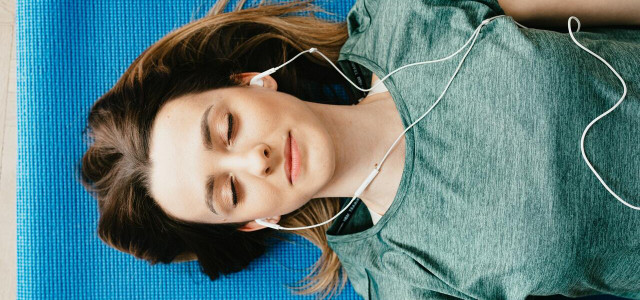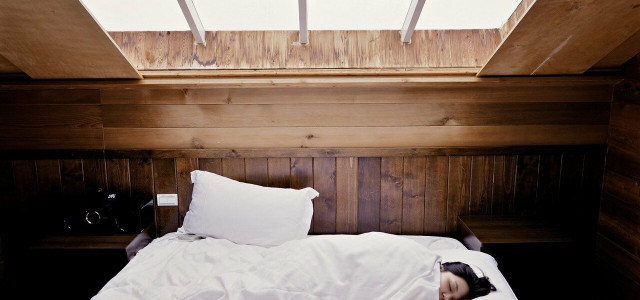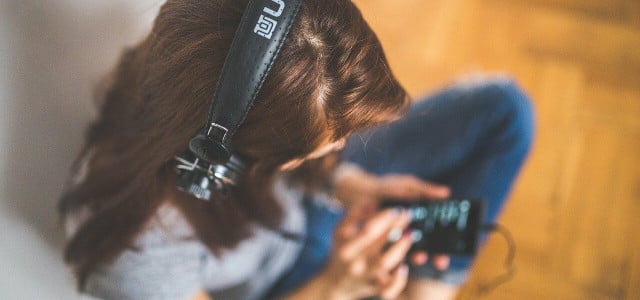Having trouble falling or staying asleep? You’re not alone. We’ve compiled a list of the best sleep sounds so you can get your sleep schedule back on track.
Getting the right amount of sleep is important for your health and every day brain function. There are several things that can cause disruptions — some of which make it difficult to get back to sleep. If you find that you have difficulty falling asleep, it might be worth tying to incorporate some night sleep sounds into your nighttime routine. It may seem counterintuitive to add ‘noise’ to your room when you can’t sleep, but certain noises can actually help — keep reading to learn what the best sleep sounds are.
Night Sleep Sounds: White or Pink Noise
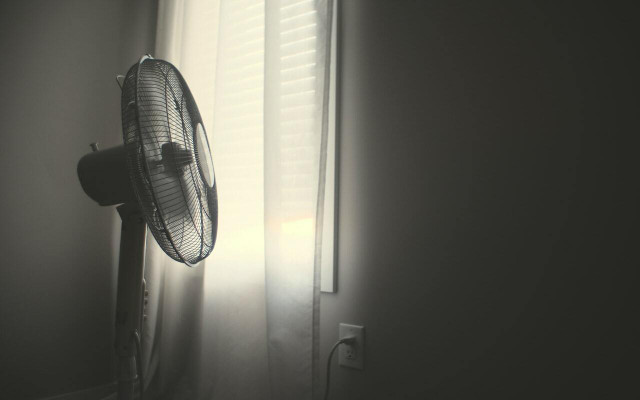


(Foto: CC0 Public Domain / Unsplash / Andrew George)
Believe it or not, sound comes in a variety of different colors known as sonic hues. What determines the color of sound is the intensity and distribution of the energy. There are two noise colors that are considered to be some of the best sleep sounds, due to their characteristics.
White Noise
White noise is the term used to describe the blend of all audible frequencies. It can be used as a night sleep sound because it drowns out unwanted sounds. White noise machines are quite common to use as a sleep aid, or you can find several white noise videos on Youtube or tracks on Spotify. If you live in a noisy city, studies have shown that white noise can be an effective sleep aid.
Pink Noise
Pink noise is also a collection of sounds humans can hear. Where it differs from white noise is that it creates a balance of high- and low-frequency sounds that mimic many nature sounds. A study from 2012 showed that pink noise was effective in reducing brain wave complexity which induced more stable sleep time to improve sleep quality of individuals.
Best Sleep Sounds: Water



(Foto: Utopia / K.Stankiewicz)
The sounds of nature are often very comforting for many people, and can help induce sleep. Water sounds, in particular, are seen as good night sleep sounds, because of the natural rhythm of the noise itself. These work to help counteract sudden, and disruptive noises like a barking dog, or a car alarm.
- Ocean Waves: listening to ocean waves crash agains the shore can send many into a state of relaxation, while still allowing them to focus on the rhythmic noise. It’s a great night sleep sound because it allows your brain to be ‘rocked’ to sleep by the gentle movement.
- Rainfall: some people sleep best when it’s raining. The gentle patter of the rain hitting the windows can be almost meditative.
Other water sounds that are good for sleeping include waterfalls, babbling brooks, or flowing rivers. Any sound that has a certain predictiveness to it, but still has some variations makes a good night sleep sound.
Nature Sounds for Sleep



(Foto: Utopia / K.Stankiewicz )
Nature sounds often fall under the pink noise category, but not all of them do. According to a 2017 study, nature sounds can help induce sleep. Depending on where you live, you don’t even need to employ the use of artificial nature sounds to help you sleep. Once the weather warms up, open up your windows to enjoy natural sounds and see if those work as a night sleep sound for you. Some pink noise nature sounds that make the best sleep sounds include:
- Forest
- Birds Chirping
- Crackling Fire
- Wind Rustling
- Crickets
Thunderstorms fall under the brown noise category, meaning it has no high frequency sounds. The heavy bass can be comforting for some, and distracting for others. Try out different sounds until you find the right one for you.
Instrumental Music as a Night Sleep Sound
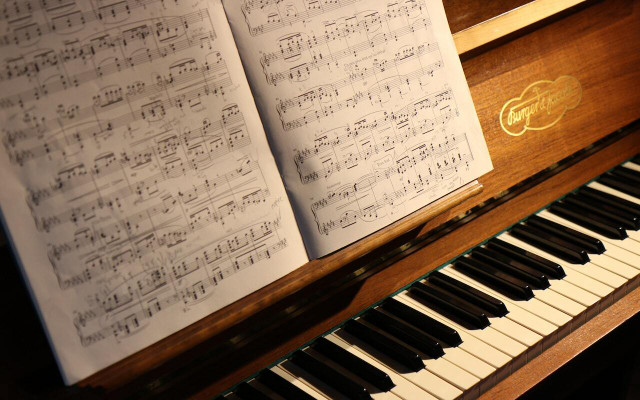


(Foto: CC0 Public Domain / Unsplash / Lorenzo Spoleti )
Much like lullabies are used to help get babies to sleep, listening to music can help calm and relax your brain — making it much easier to fall asleep. Listening to music helps lower cortisol levels and triggers a release of dopamine, which can boost good feelings before bed.
- Smooth Jazz: jazz is a wonderfully chaotic genre of music, but you do need to be careful about which songs you choose to listen to before bed. Choose smooth or coffeehouse jazz, since you don’t want unexpected loud noises jolting you awake.
- Classical Music: classical music has been shown to improve sleep quality in students, and music in general can improve sleep quality in older adults. Listening to piano versions of soft and rhythmic classical music can help prevent any unexpected instruments joining in. Songs like Pachelbel’s Canon in D, or Brahms Lullaby are a good place to start.
- Meditative Music: when you go to the spa or to get a massage, there’s often meditative music playing in the background. The purpose of this is to help quiet your mind, which will allow you to relax. You can use the same process to help get your mind ready for bed.
Tip: Everyone has a different opinion about which type of music is relaxing, however for best results, choose slow songs with between 60 to 80 beats per minutes. The average pulse is between 60 to 100 beats per minute, so the hope is that your heart rate will sync with the slower music.
Other Voices Can Make the Best Sleep Sound
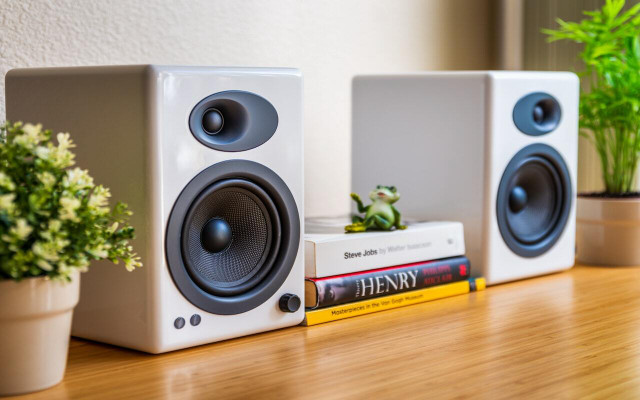


(Foto: CC0 Public Domain / Unsplash / Shakti Rajpurohit)
Remember when you were a child, and your parents would read you a bedtime story to help get you ready for sleep? Audiobooks can do the same thing to a certain extent. By listening to an audiobook or podcast, your brain has something else to concentrate on, and it can help wean you off of screens before bed.
The sound of other voices can also have a calming effect. If you notice that you often fall asleep on the couch while watching TV, only to get up, go to bed, and have difficulty falling asleep, try playing coffeehouse chatter in the background.
Read more:
- Best Morning Routine: 10 Tips for Healthy Morning Rituals That Will Kick-Start Your Day
- How to Become a Morning Person (+ When it’s OK to Sleep in)
- Afternoon Fatigue: 6 Ways to Beat a Midday Slump
Important Information regarding Health-related Topics.
** Links to retailers marked with ** or underlined orange are partially partner links: If you buy here, you actively support Utopia.org, because we will receive a small part of the sales proceeds. More info.Do you like this post?






